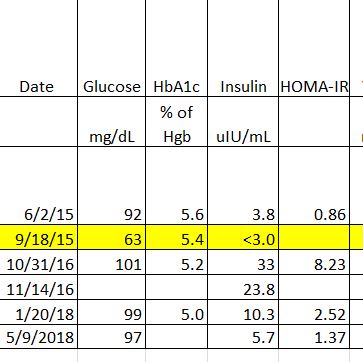Like a lot of folks, I found the ketogenic diet through Dr. Fung’s “The Obesity Code”. Dr. Fung’s contention that insulin resistance is a key driver in obesity made a lot of sense to me. I also believe that I am insulin resistant, although I have no evidence of that. I’d be curious to know what my level of insulin resistance is now, so that I have a baseline (I’m only 1 month into keto). I’d like to take another fasting insulin test in 3 months so that I can quantify the improvement in my insulin resistance.
We talk an awful lot about insulin resistance on this forum. Many of us here believe it is the key driver in our obesity and metabolic dysfunction. I see hundreds of pictures of Keto Mojo readings for ketones and glucose, but I have recall seeing a single mention of fasting insulin. People may think that tracking glucose is a good proxy for insulin resistance, but that isn’t actually true. They are related, but insulin resistance is defined by metric HOMA IR ( Homeostatic Model Assessment of Insulin Resistance). The calculation is (Fasting Plasma Insulin * Fasting Plasma Glucose)/22.5. Just knowing your glucose level is insufficient. For those data geeks out there, it’s a big ol’ #DIV/0!.. 
Has anybody here actually quantified their insulin resistance? Does anybody know what it costs out of pocket (no insurance).
Here is an interesting article on testing fasting insulin level and the calculation methodology for insulin resistance.




